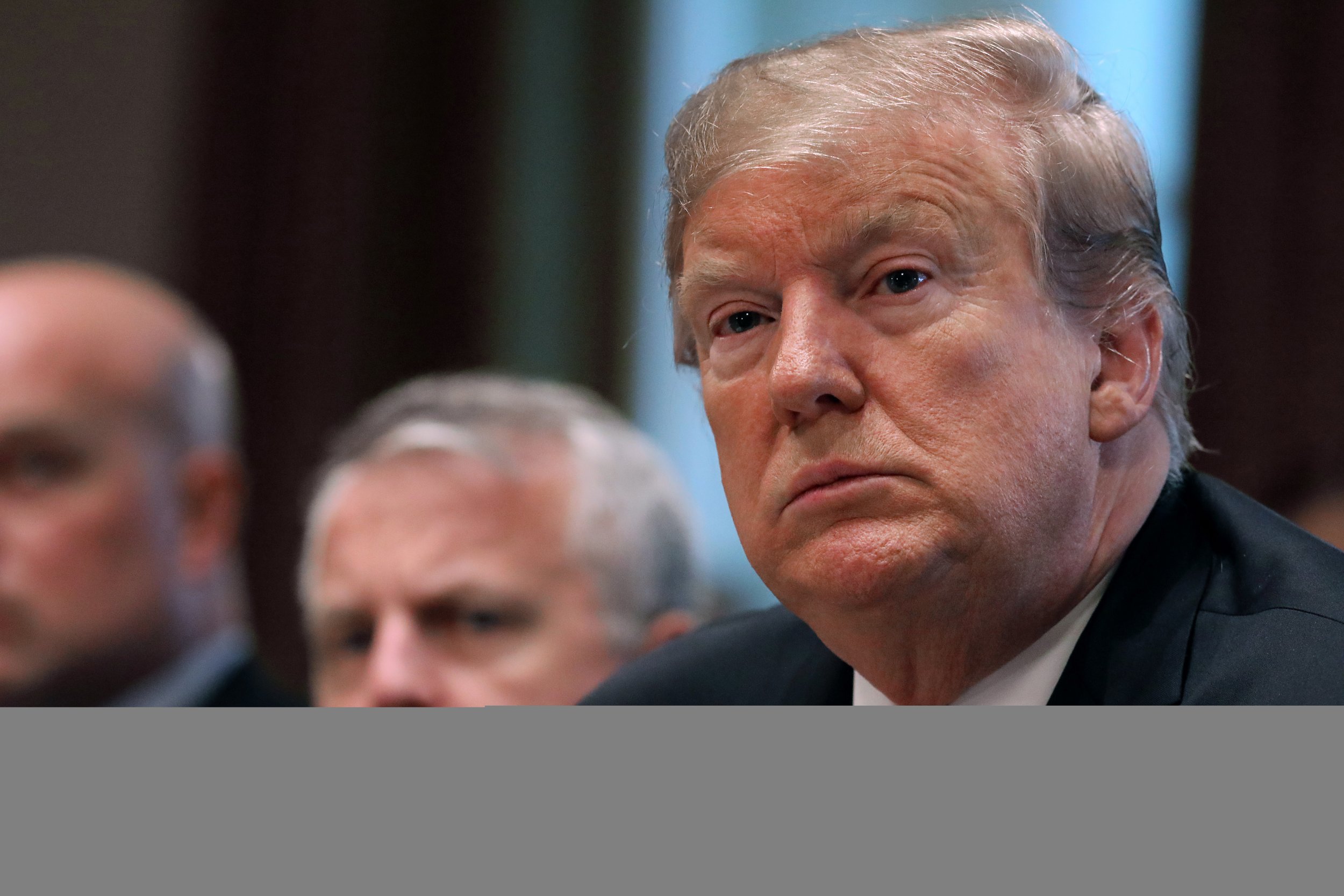
After gaining a few pounds since last year's physical, President Donald Trump has inched into obesity, with a body mass index (BMI) of 30.4. But Dr. Sean Conley, the physician to the president, reported the leader was in "very good health" when he released the results of his latest physical exam on February 8.
These two points might seem contradictory, but experts say BMI isn't a good indicator of health for individuals. So what is the widely used index, and what can it really say about our bodies?
BMI is calculated by weight in kilograms divided by height in meters squared (kg/m2.) A normal BMI sits between 18.5 and 24.9, according to the World Health Organization (WHO). Results between 25 and 29.9 are overweight and values of 30 or above indicate obesity.
At 30.4, Trump's BMI is just above the average for U.S. men over the age of 60 (29.2), according to a recent Centers for Disease Control and Prevention report using a 2015-16 survey data.
There are several reasons BMI can miss the mark when it comes to your health. For one, it doesn't distinguish between fat and muscle. So if you work out often and build up a lot of muscle, BMI may overestimate your level of fatness, Stanley Ulijaszek of the Unit for Biocultural Variation and Obesity at the University of Oxford, told Newsweek. If you live a very sedentary life, it may underestimate it instead, he said.
And it's not just the amount of fat you carry that's important for health. Where that fat sits is key. "Visceral fat" that sits in the abdomen and the liver is particularly dangerous, Ulijaszek said.
Stored around a number of major organs, this fat impacts both metabolic and cardiovascular health, Michelle Swainson, a physiology lecturer from Lancaster University, in the U.K., told Newsweek.
Although it's difficult to know how much fat is stored in your liver, waist circumference can provide a "reasonable guess" as to abdominal fat, Ulijaszek said. Waist-to-height ratio, Swainson added, is also gaining traction as an indicator of heightened obesity-related risk.
BMI was accepted by the WHO for international use in 2000 and touted as a tool to help understand obesity prevalence within and between populations, evaluate public health interventions and more, according to Ulijaszek.
"That's a lot of work that BMI is expected to do, and the claims can be challenged to some extent. At the individual level, it's a crude measure—BMI works best for measuring obesity rates in populations," Ulijaszek said.
Swainson agreed, saying: "All BMI can really tell us is, 'Are you the correct weight for your height?'" It is a valuable tool for tracking obesity trends in a population, she said, but on its own it isn't always the best way to evaluate an individual.
BMI is limited as a truly global tool because its standardized cutoff points don't account for regional variation. Some populations tend to carry more or less fatness per unit of BMI than Europeans, on whom the measure was largely built, explained Ulijaszek—who authored Models of Obesity—From Ecology to Complexity in Science and Policy in 2017.
Experts have recommended shifting cutoff points for groups with different chronic disease risk at higher or lower levels of BMI.
Even though BMI is far from perfect, that doesn't mean the WHO—which routinely evaluates its use of the measure—should switch to an index such as waist circumference. Most data collected on obesity around the world is formed of BMI, Ulijaszek explained, so "switching measures in the middle of a global obesity epidemic" risks harming those public health programs already up and running.
"The best way to use BMI as an individual is to know your own measure, to know whether or not you sit within the boundaries for healthy weight, and to track it so that you try to stay within the boundaries while maintaining a healthy skepticism of the precise value of the measure for you as a person," Ulijaszek said.
Uncommon Knowledge
Newsweek is committed to challenging conventional wisdom and finding connections in the search for common ground.
Newsweek is committed to challenging conventional wisdom and finding connections in the search for common ground.
About the writer
Katherine Hignett is a reporter based in London. She currently covers current affairs, health and science. Prior to joining Newsweek ... Read more
To read how Newsweek uses AI as a newsroom tool, Click here.






